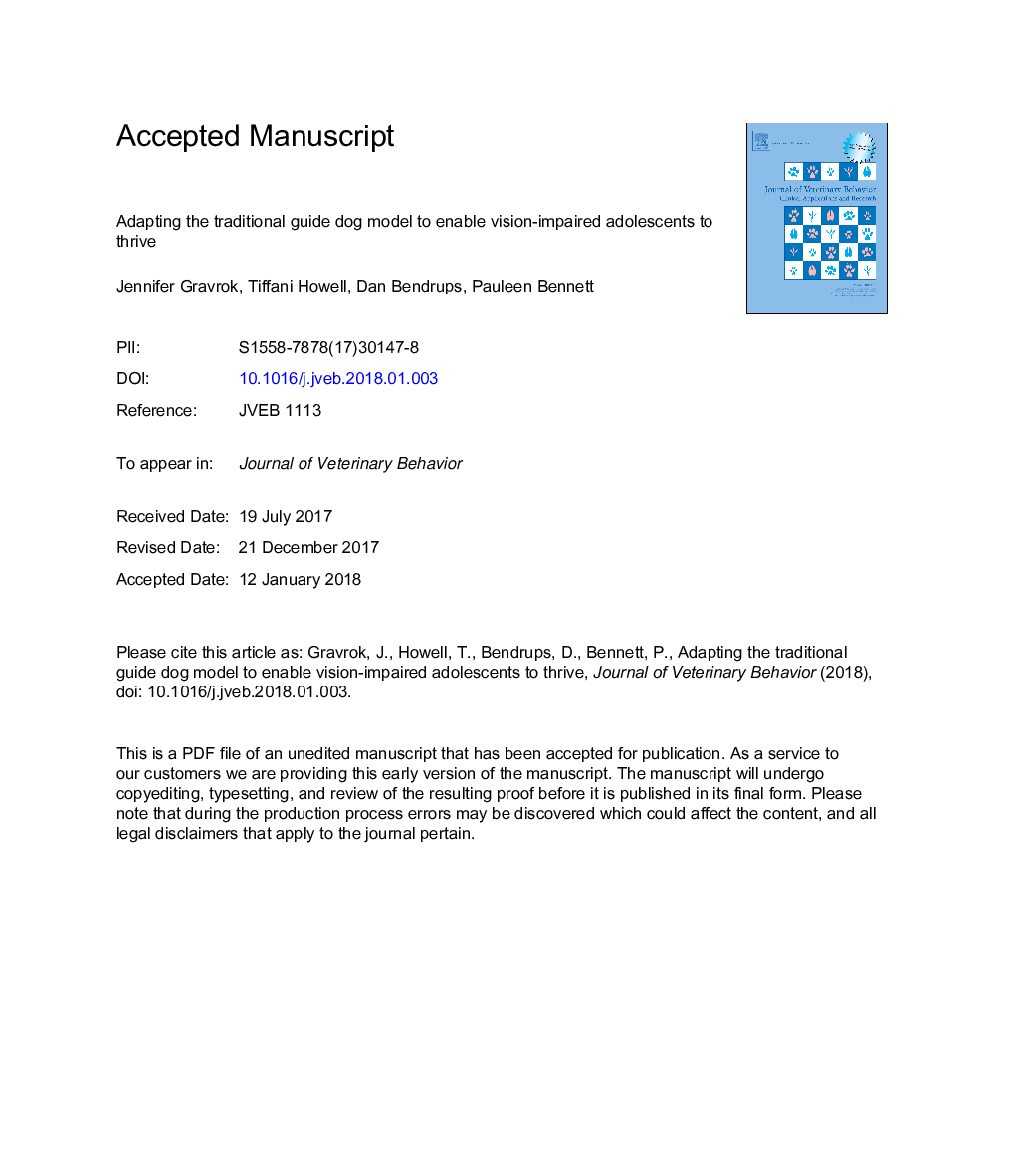| Article ID | Journal | Published Year | Pages | File Type |
|---|---|---|---|---|
| 8484147 | Journal of Veterinary Behavior: Clinical Applications and Research | 2018 | 31 Pages |
Abstract
People with vision impairments face physical, psychological, and social challenges, potentially preventing them from thriving-defined as growing and flourishing especially in the face of adversity. Guide dogs relieve some of these challenges for vision-impaired adults. However, due to concerns regarding an adolescent's ability to manage a guide dog, they are typically ineligible as handlers. The purpose of this research was to explore expectations regarding benefits/challenges that adolescents could experience from a guide dog. We interviewed 4 vision-impaired adolescents, their parents, and staff from a guide dog organization. Stakeholders expected that benefits associated with a guide dog's trained abilities, such as improved mobility, safety, and independence, may be difficult to achieve. However, additional expected benefits, including increased confidence, companionship, and social support, are critical to thriving. Hence, we propose employing facilitated support dogs, ameliorating these challenges, while providing thriving benefits at an earlier age and preparing adolescents for later use of a guide dog.
Related Topics
Life Sciences
Agricultural and Biological Sciences
Animal Science and Zoology
Authors
Jennifer Gravrok, Tiffani Howell, Dan Bendrups, Pauleen Bennett,
